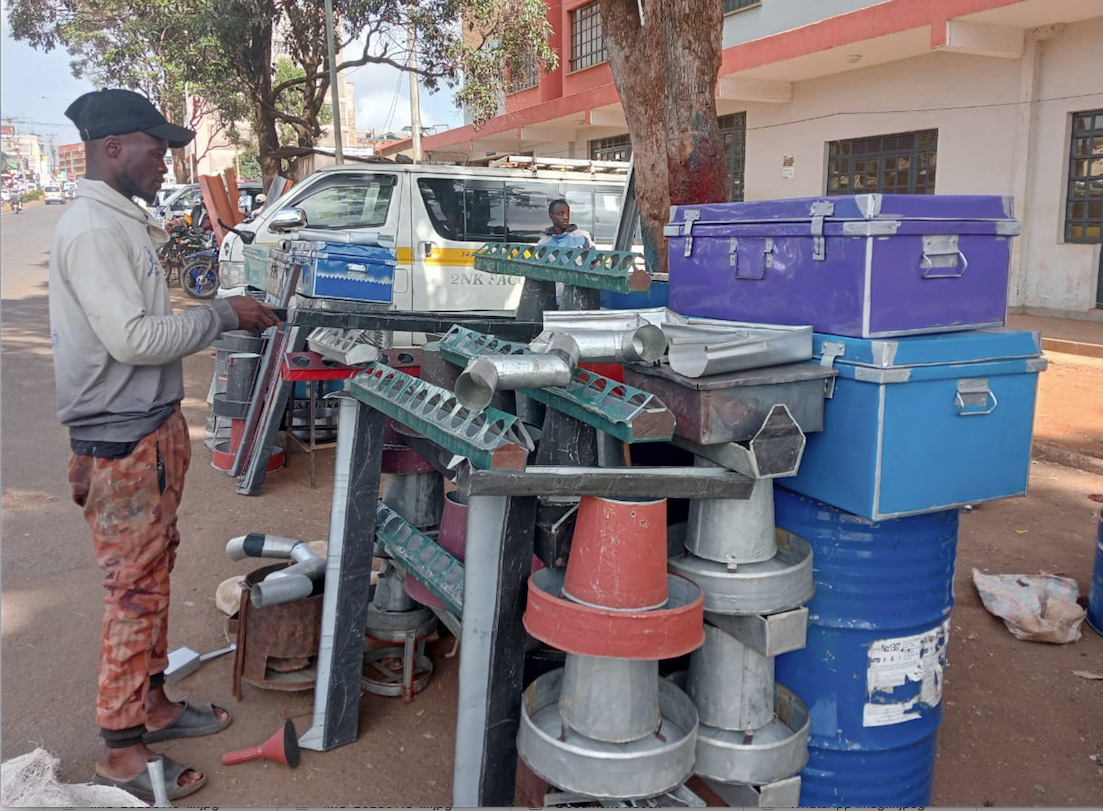

As the country goes through the first phase of transition in the education sector with the phasing out of Form-One intake this year, a section of traders in Nyeri are reading from a different script.
Kenya introduced the 8-4-4 education system in 1985 when the Government at the same time phased out the Certificate of Primary Education (CPE) examination and replaced it with the Kenya Certificate of Primary Education exam while the Kenya Certificate of Education (KCE) at O-Level became the Kenya Certificate of Secondary Education (KCSE).
However, with the introduction of the Competency-Based Curriculum (CBC) in 2017 modelled under the 2-6-3-3-3 model, the country began a gradual transition from the old 8-4-4 system that had been around for more than three decades.
The last KCPE examination was done on November 1, 2023, at 11am and was subsequently replaced by the Kenya Primary School Education Assessment (KPSEA).
The transition to the new system has however turned out to be a bane to some traders who erstwhile used to cash in on the Form-One intake by making a windfall selling goods and merchandise required by learners when reporting to school.
Kenneth Wachira, a jua kali artisan who makes metal boxes for school-going students, said the new changes have hit him really hard.
Wachira, who also deals in metal gutters, steel buckets, chicken feeders and jikos, said a times like now, he used to make a kill from selling boxes to students who used to flock to his premises in droves.
The prices of the metal cases vary depending on the gauges that range from 24, 26 and 28.
The price of school boxes of gauge 24 stands at Sh2,500, gauge 26 goes for Sh2,000 and gauge 28 goes for Sh1,500.
“Businesses in metal boxes are a bit down as there is no Form-One intake this year. On a good day, I make about Sh5,000. This is different compared to what we used to sell when the Form-One intake was still in place. Things have really changed for the worse, especially in view of the prevailing hard economic times,” he said.
Edwin Okoth is also a jua kali entrepreneur who specialises in making school boxes, gutters, buckets and chicken feeders.
He cited the high cost of metal sheets as another Achilles heel that has impacted negatively on his business.
The cost of transporting the metal sheets from the factory in Nairobi to Nyeri also shot up making production quite expensive.
“I always get my materials for making my items from Nairobi. The cost of these metal sheets has also gone up. What I used to purchase at Sh850 is now going for Sh1,200. And now in the absence of Form-One intake this year, the situation can only get worse,” Okoth said.
Lucy Mwangi, a bookshop owner in Nyeri town said her business has also been affected by the new changes in the education sector.
She said while the prices of high school textbooks for senior secondary schools have remained unchanged in 2024, those for grades one to seven keep fluctuating.
Mwangi said some of the books for the Junior Secondary School (JSS) are in short supply.
“Business is not currently vibrant as we were used to over the years during form-one admission. The change in the education system has affected the sales of books as the only textbooks we are selling are for students in forms two, three and four. Another challenge we are facing is due to the fact that some of the Junior Secondary School textbooks have not been published yet,” she said.
Joseph Maina, a uniform distributor, claimed business has been particularly good during the school opening season despite the difficult economic situation facing many parents with school-going children.
In addition, and unlike other traders who deal with school merchandise, the transition from 8-4-4 to CBC has had minimal effect on his business.
“We are always in business since uniforms are essential requirements for schooling. The transition to the new education system has not affected our business in any way. Thus, even with the absence of Form-One intake, we are still busy serving those joining other school grades,” Maina said.











